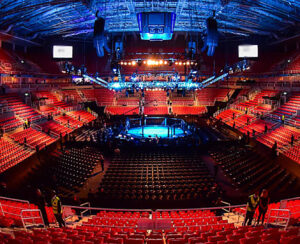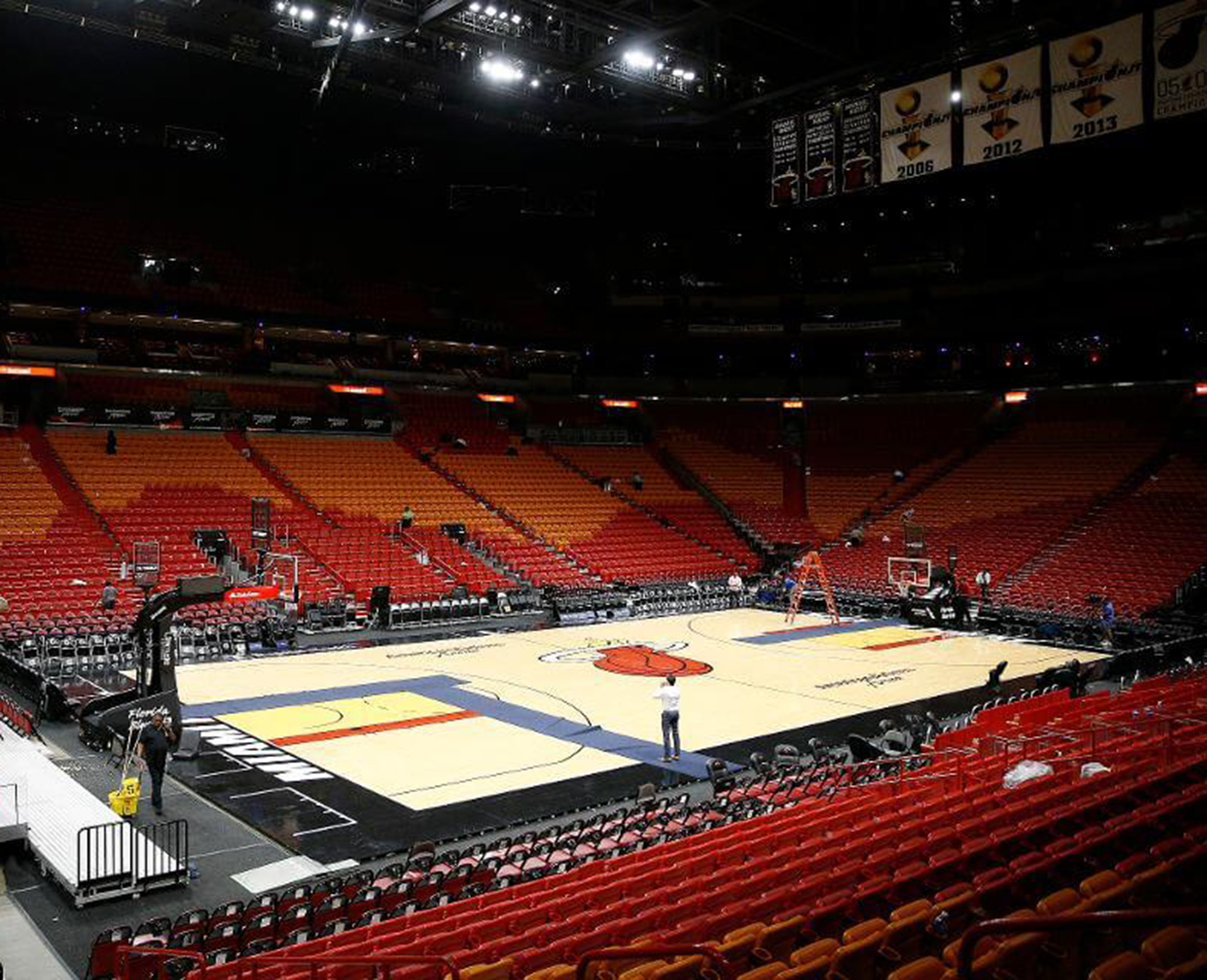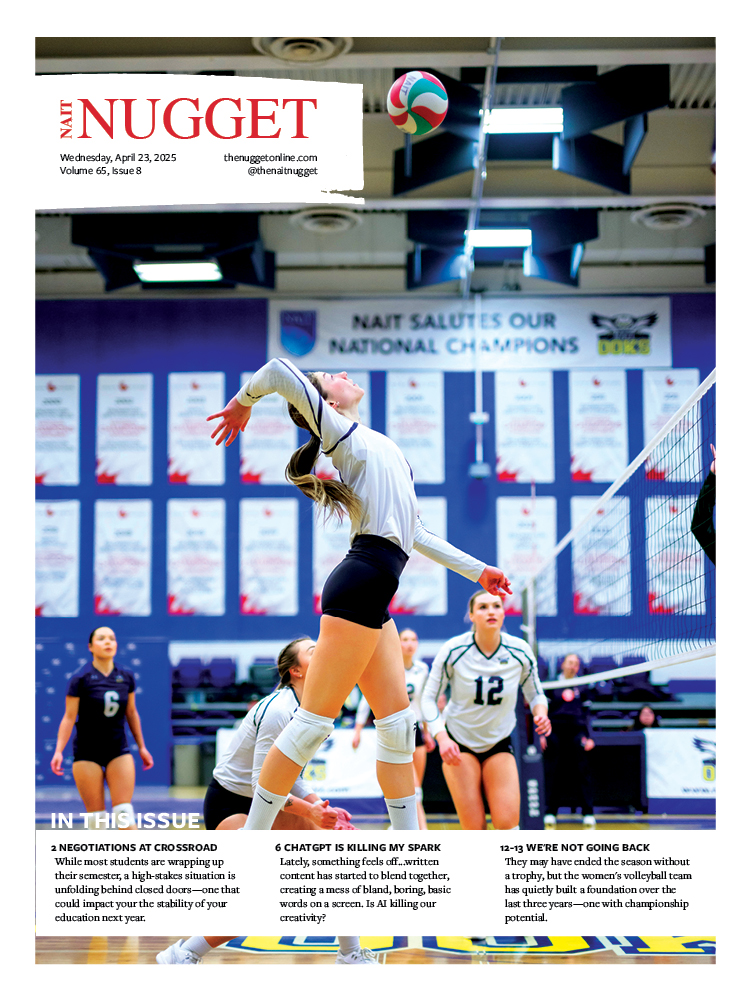
Supplied photos.
By Orrin Farries
Sports Editor
You cannot spell catastrophe without ‘sport’.
That is what these last two weeks have been for the sporting world. A catastrophic blow to the meta-ego of sports enthusiasts everywhere.
The question of whether sports will continue this year continues to be agitated by global updates on governmental rulings on mass gatherings.
The NBA will not continue their season until May at the earliest. The NHL is likely in a similar boat for future outlook. The 2020 Tokyo Olympic games are to be postponed. The UFC will likely postpone a fight that has been a half decade in the making in Tony Ferguson versus Khabib Nurmagamedov. The NFL season should go ahead as planned, but the off-season is likely to be hindered by the lack of in-person team gatherings or camps.
Even in the world of sports entertainment, WWE has announced that Wrestlemania, the showcase of the immortals, is going to take place in the WWE performance center in Florida with no fans in attendance. The sporting world had to take a backseat, but now the question lies, when will it achieve normalcy again?
While the world lies in various states of emergency in recoil to the COVID-19 pandemic, it seems trivial to even ponder on the eventuality of the return of spectator sports.
Nonetheless I have come to realize with greater perspective the symbolic nature of spectator sports in society.
While they may be trite distractions from the otherwise serious nature of the human experience, sports are likened to the keystone species indicative of the overall health of the ecosystem. They can also serve as important distractions when the overall health of the ecosystem is thrown into shock.
In 1995 as Nelson Mandela was hard at work helping South Africa recover from the fallout of Apartheid, the Springboks, South Africa’s national rugby team, overcame the odds to defeat the heavily favoured New Zealand All Blacks and win the Rugby World Cup.
When Donald Trump was first elected president in 2016, we got to see a different inauguration of sorts when LeBron James helped the Cleveland Cavaliers capture the NBA Championship for the first time.
Good times, bad times; everybody’s had their share.
In revering the reality of the times in which we live, it is reasonable to say that sports, and normal post-isolation life as we know it, will not resume until May at the earliest, and that is if the billionaire owners can suck up the loss of ticket revenue.
Capitalism being a sociological virus of nefarious design, will likely pigeonhole professional sports from commencing until July or later when local authorities permit larger gatherings, and thus the allowance for stadiums to partially fill and pad the pockets of sports ownership groups.
The 2020 Olympics being postponed is a harbinger of a delay far worse than what was originally expected. Many sporting bodies may take their guidance from the actions of the IOC, who admittedly operate a far larger gathering of athletes and fans of sport. This could mean that the NBA and NHL move forward by cancelling their seasons, and awarding no champion, similar to what the ACAC were forced to do with men’s and women’s hockey provincial championships.

On March 13, the UFC hosted fight night with no fans in attendance. | Photo via CBS Sports
The UFC have already hosted one fight night with no fans in attendance, and may leverage their broadcast providers for extra money, and more expensive pay-per-views to continue doing just that.
While the future of spectator sports remains uncertain, it is at this time that many of the major sporting outlets have given free-access to their archives of footage.
NBA League Pass is free during the hiatus of their season. NFL Game pass has been made free to every country except for Canada, so if you want it, you’re going to have to get sneaky with your VPN. WWE network just became free for the public, with archives of every Wrestlemania so you can make like Randy Savage and snap into a slim jim and sit this pandemic out at home on the couch. UFC Fight pass still wants you to show them the money, but is a worthy outlet of endless sports entertainment for this trying time.
My suggestion for beating the post-sports blues is to find good literature on your spectator sport of passion, and fill in the missing details of your favourite sport’s rich history. I have compiled a list for your reading inspirations.
Basketball
– The Book of Basketball (2nd Edition) by Bill Simmons
– Basketball and Other Things by Shea Serrano
– The Breaks of the Game by David Halberstam
– When March Went Mad by Seth Davis
Football
– Winning Everyday by Lou Holtz
– A Thinking Man’s Guide to Pro Football by Paul Zimmerman
– The Education of a Coach by David Halberstam
Baseball
– The Long Season by Jim Brosnan
– Big Data Baseball by Trevor Sawchik
– Moneyball by Michael Lewis






